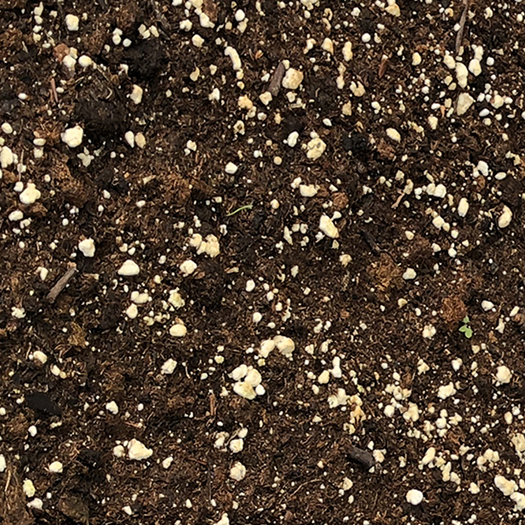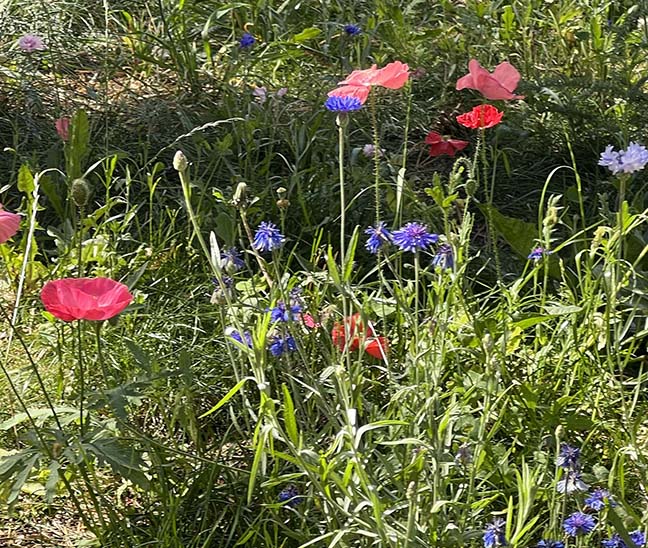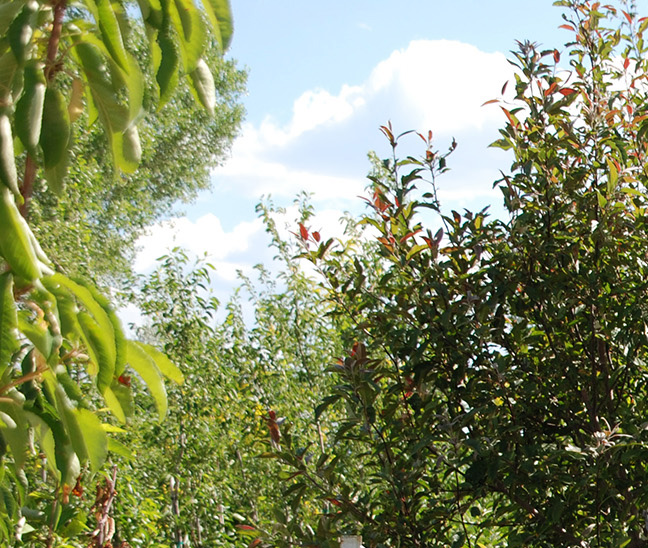Deadhead your roses.
Most roses will bloom all season long if you stop them from producing fruit, a.k.a., rose hips.
You do this by deadheading.
Using a sharp pair of pruners, trim off all flowers you see that are looking tired or spent.
This is something you can do throughout their flowering season for perpetual blooming, and not to be confused with the annual pruning we recommend in the spring for the health of the plants.
Xeriscaping or Zeroscaping?
Xeriscaping (“dry” landscaping) is landscaping that requires minimal watering once established.
Moisture conservation is key, and your xeriscape can include things like efficient irrigation systems, water-retaining mulches, and, of course, drought-tolerant plants.
Zeroscaping, or 0-scaping, is landscaping design that aims for zero maintenance once established.
It can consist primarily of non-living elements like rocks and decor, but you can also incorporate native plants and wildflowers that know how to fend for themselves in your area.
A living zeroscape may have a “wilder” appearance than conventional landscaping, but you can keep it more true to your vision by putting down weed barrier fabric to prevent unwanted plant life from emerging.
Check out Lori's Summer of Tough Love blog for a peek into how our senior expert uses these techniques in her own landscaping and gardens.
Living with grasshoppers...
We asked our newsletter subscribers to share their best grasshopper control methods, and what we’re hearing is that predators are the most reliable strategy.
Turns out lots of animals love to devour these voracious eaters of our garden plants, including coyotes and pet cats… but your biggest allies in grasshopper management are birds and bats.
Chickens, geese, ducks, and other domestic birds are pretty great if you have the means to keep them, but you’ll also do well to invite wild birds and bats to your property by providing good habitat and an open water source.






